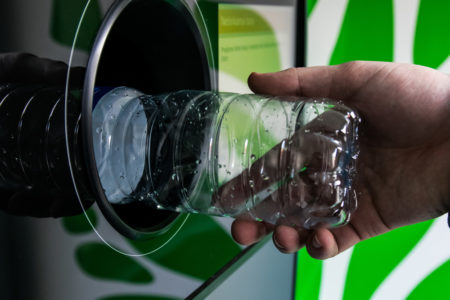The consultation period for EPR for packaging and the deposit return scheme (DRS) in England, Wales and Northern Ireland closes next week.
The aim of reform is to address excess packaging waste issues by incentivising producers to consider packaging at the design stage opting for more sustainable, easy to recycle solutions.

Under the new system, producers will also bear the full net cost of managing the packaging waste they drive to market in line with the ‘polluter pays’ principle.
In a world facing an ongoing and very real threat from climate change, there is no doubt there is a need for an overhaul of packaging and packaging waste systems.
The challenge lies in creating a system that is reliable, consistent and ultimately achieves the desired outcome of reducing waste and increasing recycling rates.
PRN
The current packaging recovery note (PRN) system, which has been in place since 1997, has made great strides in increasing packaging recycling rates and has worked particularly well for glass.
With the introduction of EPR comes the expected end to the PRN which has played a central role in driving glass recycling rates to one of the UK’s highest of any packaging material at 68.8%.
While the PRN has been beneficial to glass recycling rates, the industry has always acknowledged its shortcomings and pushed for reform to drive better consistency.
The glass industry has set itself ambitious targets of 90% by 2030 and will cooperate with government to achieve this goal (see letsrecycle.com story). Reform must take into consideration sector specific objectives and address long term inconsistencies.
Deposit return
EPR may prove to be better at stimulating overall advancement in packaging and packaging waste management than the existing target-led PRN. There are still a lot of unknowns, but it is expected the enhanced regime should create more revenue and a generally more sustainable system.

It is also reassuring to see the consultation is on behalf of all four UK Governments, unlike that of the proposed DRS, where Scotland is set to apply its own system in 2022.
The glass industry has been very clear in its opposition to the inclusion of glass in a DRS which evidence repeatedly shows could be devastating for glass recycling rates. DRS threatens to divert glass packaging away from kerbside and bottle bank collections which could ultimately lead more glass into landfill.
The opportunity to get it right
Reform of this kind offers the opportunity to address long standing issues while meeting the climate crisis head on with a meaningful and effective waste management strategy. An ideal system will drive more funding into effective recycling processes and support positive consumer behaviour through regular waste and recycling collections clear communication.
For glass, the need to prioritise remelt over aggregate can’t be emphasised enough. It is vital the system incentivises responsible recycling and reprocessing that drives more glass into remelt; this is the only way to achieve the circular economy goals for glass.
Related links
Defra consultation on extended producer responsibility for packaging











Subscribe for free